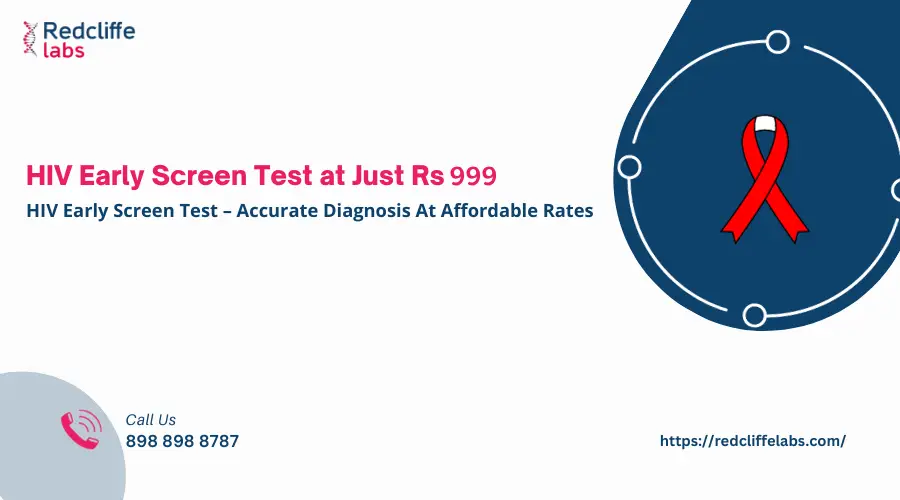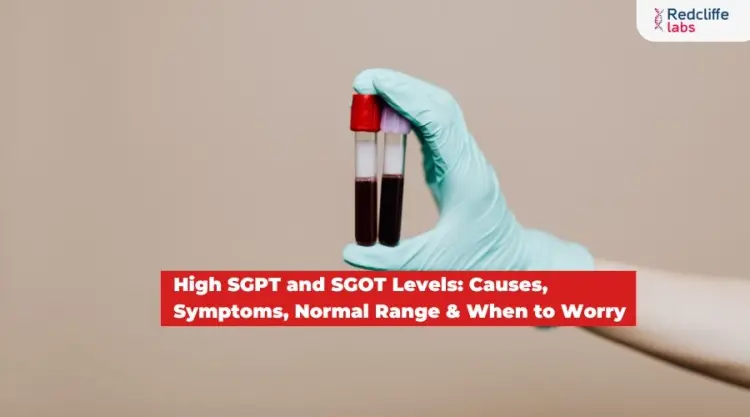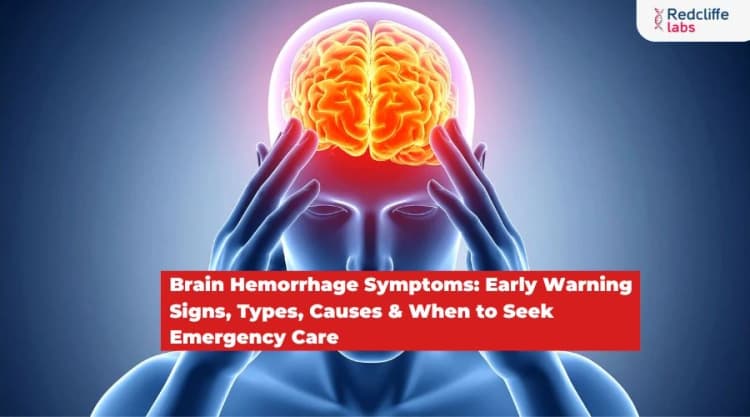Blood
Unlock special
discount on
this package
Login to Unlock 🔓
Also Known As
HIV Early Screentest Instructions
Booking Benefits Unlocked Worth FREE 799

Report Consultation

Diet Plan
*Available once your report is generated.
At Redcliffe Labs, we have a single goal: to give India its right to quality diagnostics.
Customers served
Tests Processed Everyday
Cities
Collection Centres
World Class In-house Labs
Home Collection Experts
1 Test Parameters
HIV Early Screen
1 PARAMETER INCLUDED
1 PARAMETER INCLUDED
- HIV Early Screen
Helps you know your test better
Who all are eligible for this test?
- This antigen test, known as p24, is a useful test to diagnose recent or early-infected patients with HIV. It shows accurate values of infection if done between 11 days and 1 month after getting infected with the HIV virus. A HIV-1 and 2 antibody test is done afterward to confirm the presence of HIV and find out if the patient has HIV-1 or HIV-2. This is a follow-up test done for the confirmation and differentiation of HIV.
- Individuals in the age group of 13 to 64 should get tested for HIV at least once a year as a routine health checkup.
- Low birth infants.
- Breastfeeding mothers.
- Newborn infants during pregnancy or after delivery.
- To see the progression of the disease in already HIV-infected people.
Why take HIV Early Detection Test in Delhi?
- Early detection helps in monitoring, survival, and health improvement in the long term, reducing morbidity.
- This is a combo test that works at a higher level (an advanced test) and shows more accuracy.
What are the benefits of this test?
- The test is done in cases of high risk of exposure and disease surveillance.
- This test is much better than the earlier diagnostic tests for HIV in terms of accuracy and early detection.
Top Booked Health Checkup Packages
Reports in 13 hours
|Parameters 94
Reports in 13 hours
|Parameters 89
Reports in 13 hours
|Parameters 96
Reports in 13 hours
|Parameters 96
Reports in 13 hours
|Parameters 90
Helps you know your test better
Q. What Are The Early Symptoms Of HIV?
Q. What Are The Later Symptoms Of HIV?
Q. How Is HIV Transmitted?
Q. Will I Need To Do Anything Special To Be Prepared For The Test?
Verified by Medical Expert

MEDICALLY REVIEWED BY
Dr. Himani Pandey

WRITTEN BY
Anjali Dubey
HIV Test in Delhi
Overview
HIV stands for Human Immunodeficiency Virus transmitted to humans after being in contact with infected blood, semen, or vaginal fluids. It’s a virus that attacks the body’s healthy cells in the immune system and interferes with its ability to fight against disease-causing germs. Only early detection or early HIV Test can reduce patient mortality and prevent HIV transmission. The early diagnosis prevents disease progression and transmission to others.
Understanding What are HIV & STDs? and how to avoid getting HIV & STDs infection
Purpose Of HIV Early Screen:
- Help to detect the virus as early as possible and provide one access to early treatment.
- Minimize risks of several non-AIDS-related diseases.
- As far as preventive measures are concerned, HIV Blood Test or HIV Early Screening Test becomes crucial.
- It reduces morbidity and mortality associated with this life-threatening disease.
- Early HIV Screen reduces the risk of HIV transmission to others.
Who Should Go For HIV Screening Test?
According to the CDC (Centers for Disease Control and Prevention), everyone between the age of 13 and 64 should get tested for the disease once in their lifetime. Other than that, one should go for the testing if they are:
- Sexually active with more than one partner.
- Share needles, syringes, or other equipment with infected patients.
- Believe that they have been exposed to HIV.
- Have higher chances of contracting the disease.
- Have been diagnosed with any other sexually transmitted infection or disease.
- Had a physical relationship with someone who has HIV.
So, if you fall into any of these categories, you must get a Rapid HIV Test done before it's too late. If you are looking for an authorized HIV Testing Center to enquire about HIV Test Cost, Redcliffe Labs is the name to recall.
When Should You Go For An HIV Test?
No test type can detect HIV immediately after being exposed to the infection. If you get tested before the defined time lag, you may get false results and need to go for the re-testing. However, during this period, it is a must to avoid unprotected sex and sharing needles or syringes to prevent the further transmission of infection to others. You can even ask your healthcare professional or nurse what other precautions you should take.
HIV Testing Types:
- Antibody Screening Test: Also called as ELISA test, it is the most common HIV test that demonstrates one’s antibodies to HIV in blood or oral fluids. It ensures precise results, yet it cannot determine an early infection.
- Antigen/Antibody Combination Tests: These look for antibody and p24 antigen in your blood and can detect the virus earlier than antibody screening testing.
- Nucleic Acid Test (NATs): It is a blood test that specifies the amount of virus present in a blood sample.
HIV Test Price in Delhi
| Name Of The Test | HIV Test in Delhi |
| Sample Type | Blood |
| Number Of Tests | 1 |
| Actual Test Price | Rs 1110 |
| Discounted Test Price | Rs 999 |
| Home Sample Collection | Available |
| Additional Cost For Home Sample Collection | Nil |
| Fasting Before Test | No Fasting Required |
| Get Reports Within | Same Day |

HIV Early Screening tests for the virus soon after being exposed to the virus, even before the body has developed detectable HIV antibodies. It can be done through various methods, which a doctor may suggest, depending on your condition and other factors. With this early screening, HIV can be identified even before the symptoms appear. This early detection enables identifying the infection and initiating treatment to manage symptoms and improve health outcomes. Individuals with active sexual life or using injection drugs should get themselves tested at least once a year & more often if they are at high-risk behavior. All of us need to understand that HIV Early Screening is important in fighting against HIV Infection & can help an individual take control of their well-being.
Redcliffe Labs is the best Omnichannel Pan India Diagnostic Service Provider that you can rely on to book an HIV Test in Delhi. We provide reliable testing using advanced tools to maintain precision in the test results and offer an excellent experience to clients.
Note: We also offer HIV Test PAN India. Please call the number 8988988787 to check the availability of our services in your area.
Importance Of HIV Early Screening:
Getting tested for HIV can help detect the infection early and help one obtain the treatment before things go out of hand. Here are some key points highlighting the significance of early HIV Screening:
- Helps In Early Detection: HIV Early Screening enables the detection of the virus even before the body produces detectable levels of antibodies. The test helps detect HIV sooner, allowing them to receive treatment & improve health outcomes.
- Initiate Preventive Care: The HIV Test benefits those at high risk of infection. This may help one take safety measures to prevent the spread of the virus and ensure better health management.
- Provide Access To Treatment: Early HIV Screening enables individuals with HIV to access treatment options early. There is no cure for HIV yet, but timely treatment can slow down the progress of the virus & reduce the risk for other conditions associated with HIV.
- Allows You To Take Charge: Getting tested in time provides peace of mind allowing you to take charge of sexual health and adopt necessary safety precautions. Being aware enables one to limit the spread and take better preventive measures.
To conclude, we can say that Early HIV Testing is crucial to identify the virus and take preventive measures before things turn ugly. Knowing your HIV status may help you be alert, reduce the spread and allow you to make informed decisions to take control of the condition. So, if you are into high-risk factors or your doctor has suggested HIV Early Screening Test, do not delay and get yourself tested at the earliest. HIV Test Price in Delhi with Redcliffe Labs is just Rs 999. So, why wait, and what for? Get tested at the soonest to take charge of your condition.
Tips To Reduce Your Risks Of Getting HIV:
Anyone can get HIV, especially with high-risk behavior. However, some steps can help you protect yourself from the condition.
- Take Safety During Intercourse: One of the major causes of the spread of HIV is unprotected intercourse behavior. Hence, the key to preventing it is to be very safe and use protection while indulging in any sexual practice.
- Limit Number Of Sexual Partners: Multiple sexual partners increase your risk of contracting HIV or transmitting the virus further. Hence, carefully reduce your infection probability and ensure maximum safety.
- Do Not Share Needles: Apart from sexual intercourse, sharing needles is another major factor that can increase your risk of contracting the virus. So, never share needles with anyone.
- Get Tested For HIV: Delaying in the screening can make the condition out of control, leading to high-risk factors and severities. So, it is always good to get routinely tested for STIs and HIV to stay ahead of your health, reduce your risks, take safety measures in time, and get treatment early.
Your little carefulness can benefit your health big. Therefore, being careful about your choices and taking appropriate measures is essential to avoid risks and keep yourself and the community safe. The earlier you get screened, the easier it will be for you to manage the symptoms, stop the spread and control the condition. So, don’t take the risk. Act in time to improve your sexual well-being and your overall wellness.
There are many ways you can prevent yourself from being exposed to or getting contracted HIV. Practicing them all is essential to minimize your likelihood of getting infected. If you think you are at a high-risk factor, getting tested regularly, as suggested by your healthcare professional, is paramount to reducing your risks and taking charge of your health. You can book AIDS Test in Delhi with Redcliffe Labs to get tested comfortably from home.
Other HIV Tests You Can Book With Redcliffe Labs
| Name Of The Test | Price |
| HIV Antibody, Rapid Card Test | 449 |
| HIV 1&2 Antibodies by CMIA Method Test | 580 |
| HIV Antibodies (confirmation) by Western Blot Test | 3700 |
| HIV-1 Monitor Test | 7600 |
| HIV 1 Viral Load | 5500 |
Things To Know Before Opting For HIV Test in Delhi:
- For a Lab HIV Blood Test, you need to search for HIV Testing Near Me and schedule an appointment.
- During the test, a health care professional will take a small blood sample from the vein in your arm, collect it into a vial and send it for testing.
- You can also opt for a home test for HIV Tridot Test and HIV 1 and 2 Test and get your results within a few business days.
- If the test is positive, the lab will also do a follow-up test for more accurate results.
Why Choose Redcliffe Labs For HIV Screening Test?
- The expertise of our skilled professionals speak for our work and has helped us become a trusted HIV Testing Center.
- We are loaded with cutting-edge tools and technologies required for safe and accurate testing.
- Offer ‘n’ number of tests other than HIV 1 and 2 Tests under one roof.
- Strive for perfection and provide the highest care and professionalism in our work.
What Are You Waiting For?
Whether you have queries related to HIV Test Price in Delhi or HIV Testing Center, you can speak with our representatives. We’d be happy to assist you to book an online test appointment.
5 Simple Steps to Manage Your Health with Redcliffe Labs
Quick, Simple & Convenient; trusted care delivered to your doorstep.

Start Your Online Booking
Open the Redcliffe Labs website/app. Select the test or package and enter your details. Schedule the service for your preferred slot.

Live Tracking
Stay updated with real-time tracking for a smooth and timely home sample collection.

Sample Collection
Our certified experts ensure a smooth, hygienic, and fully compliant sample collection experience.

Doctor-Verified Smart Reports
Every report is clinically checked by expert doctors and shared with smart, actionable insights.

Your Health Journey Continues Post Reports
Consult with our expert medical team to get actionable insights to improve your health.
Nearby Labs(9)
Redcliffe Labs Rohini - Delhi
Redcliffe Collection Center
Redcliffe Collection Center
Redcliffe Collection Center
Redcliffe Collection Center
Redcliffe Collection Center
Redcliffe Collection Center
Redcliffe Collection Center
Redcliffe Collection Center
Frequently Asked Questions
What is the difference between HIV and Aids?
What is the cost of an HIV test in Delhi?
Who should go for an HIV Test?
When should I get tested for HIV?
What if I tested positive for HIV?
Is a doctor's prescription required for the HIV early detection test?
Is the HIV early detection test confidential?
When is the HIV 1 & 2 Antibodies test recommended?
How does the HIV early detection test differ from other HIV tests?
Identifying the target group: Who should consider getting the HIV early detection test?
Comprehensive detection: Can the HIV early detection test identify all strains of HIV?
Exploring potential risks: Are there any associated risks or side effects with the HIV test?
When will I receive my reports?
Can I book a HIV Early Screen Test near me in Rajkot?
Can I book a home collection for a HIV Early Screen Test in Rajkot?
Health Articles & Blogs
My Health
Stay informed with our expert health articles and blogs. Explore comprehensive guides on diseases, nutrition, preventive care, and wellness tips to help you make better health decisions.
Why is PCOS Continuously Rising in Women?

10 Healthy Holi Recipes for Your Fitness Goals in 2026
Looking for healthy Holi recipes? Discover 10 festive dishes that support your fitness goals while keeping celebrations delicious.

Importance of Heart Health Before Pregnancy: Everything You Need to Know

Migraine Treatment at Home: Effective Ways to Relieve Migraines Naturally

High SGPT and SGOT Levels: Causes, Symptoms, Normal Range & When to Worry

Brain Hemorrhage Symptoms: Early Warning Signs, Types, Causes & When to Seek Emergency Care

What is SGPT in Blood Reports? Everything You Need to Know

Capsicum (Shimla Mirch) 101: Benefits, Nutritional Value, Uses and More
Explore My Health
